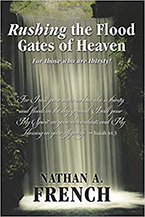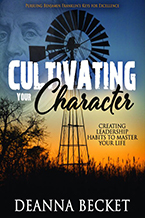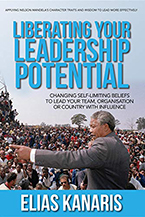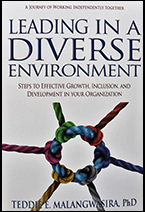Welcome to Issue 74 of the SUPERIOR BOOK PRODUCTIONS newsletter!
Happy Holidays, Everyone!
As usual, this is my busiest time of year. Here are a few of my upcoming events:
Saturday, December 1. Join me and my fellow authors at Snowbound Books’ annual holiday Author Extravaganza in Marquette, MI. Here’s the author schedule: Carrie Pearson, children’s book author 11:00-1:00; Susan Purvis, author of Go Find, 1:00-3:00; and Tyler Tichelaar 3:00-5:00.
Friday-Sunday, December 7-9. I will be selling and signing all my books at the TV 6 Christmas Craft Show at the NMU Superior Dome, in Marquette, MI. Hours are Fri 5-9 p.m., Sat 10-6, and Sun 11-4.
 Wednesday, January 9, 2019, from 7-9 p.m. I’ll be at the Shiras Room, in Peter White Public Library in Marquette where I’ll be talking about the 1913 Theodore Roosevelt Libel Trial held in Marquette and my research for my book When Teddy Came to Town. This event is sponsored by the Northern Center for Lifelong Learning.
Wednesday, January 9, 2019, from 7-9 p.m. I’ll be at the Shiras Room, in Peter White Public Library in Marquette where I’ll be talking about the 1913 Theodore Roosevelt Libel Trial held in Marquette and my research for my book When Teddy Came to Town. This event is sponsored by the Northern Center for Lifelong Learning.
I know you’re probably also very busy during the holidays. If you have book lovers on your shopping lists, below are some great books to consider getting them for Christmas.
I wish you all a very merry holiday season and a wonderful new year. May the joy, peace, love, charity, and goodwill of the season be with you now and throughout the year.
I’ll be back in 2019 with some exciting news about my next book—the twentieth one—can you believe it!
This Month’s Great Book Quote:
“Books can be dangerous. The best ones should be labeled 'This could change your life.'”
— Helen Exley
 In Rushing the Floodgates of Heaven: For Those Who Are Thirsty!, Nathan French, a pastor in Washington State, provides a special look at the personal conversations he’s had with God. French previously wrote It’s NOT Meant to Be a Secret: God Wants to Talk to You, in which he shared his dramatic story of drug use and a failed suicide attempt—failed because he believes God intervened to save him for better things. Nathan’s father, himself a minister, came to bring him home and help the healing begin. In addition, his mother has been his chief supporter and the editor of his writings, fully believing in her son’s ability to communicate with God and convey His words. God has clearly blessed Nathan with phenomenal parents.
In Rushing the Floodgates of Heaven: For Those Who Are Thirsty!, Nathan French, a pastor in Washington State, provides a special look at the personal conversations he’s had with God. French previously wrote It’s NOT Meant to Be a Secret: God Wants to Talk to You, in which he shared his dramatic story of drug use and a failed suicide attempt—failed because he believes God intervened to save him for better things. Nathan’s father, himself a minister, came to bring him home and help the healing begin. In addition, his mother has been his chief supporter and the editor of his writings, fully believing in her son’s ability to communicate with God and convey His words. God has clearly blessed Nathan with phenomenal parents.
In Rushing the Floodgates of Heaven, Nathan shares with readers the personal journal entries he made between September 2011 and April 2012, picking up where his first book left off. In each entry, he records what he hears God telling him. These are not prophecies like those of Isaiah and Jeremiah, but more like friendly conversations, although the voice of the Old Testament God is heard clearly here as is the gentle voice of Jesus. Besides the words themselves, Nathan often has visions of Jesus doing simple things such as sitting beside him that reflect the personal closeness God wishes to have with all of His children.
To read more, visit Rushing the Floodgates of Heaven.
 A. E. Coussens’ new novel A Failed State offers an inside look at what the soldiers who fight in Afghanistan, and really around the world, face on a daily basis.
A. E. Coussens’ new novel A Failed State offers an inside look at what the soldiers who fight in Afghanistan, and really around the world, face on a daily basis.
First, we are introduced to Damien Collins, a contract worker who serves the United States military in Afghanistan. Damien is returning home from his service overseas and looking forward to seeing his wife and little girl. He and his wife have been having some problems, including his wife drinking too much, but Damien has no idea of the full extent of those problems until he arrives home to a shocking scene.
We are then taken back to Damien’s recent experiences in Afghanistan. Coussens writes with great knowledge and deftness in his depiction of the Americans who serve in Afghanistan and try to maintain order in the country. Between locals who side with the Taliban and some terrorists, these men rarely have an easy day. Coussens takes us right into a gunfire scene in the city streets and the excruciating pain that follows when Damien and his comrades realize that Loki, one of their men, has been arrested by the Afghanis and is being treated like a criminal for his actions during the conflict.
To read more, visit A Failed State.
 In Muck Off, Carol Lopez shares her life story of how she fell into the muck and how she got out of it. “Muck” is a metaphor for all the bad things that happen to us in life, all the dysfunction that enters our lives, and the consequences of the bad decisions we make. Carol explains it as: “Muck! Muck! MUUUUCKK! You know what it is! It’s all the crap that tears you apart, breaks your heart, and spits you out, leaving you feeling empty, exhausted, burnt, and bewildered. You’ve tried to remain intact, but somewhere along the way, you’ve lost—you.”
In Muck Off, Carol Lopez shares her life story of how she fell into the muck and how she got out of it. “Muck” is a metaphor for all the bad things that happen to us in life, all the dysfunction that enters our lives, and the consequences of the bad decisions we make. Carol explains it as: “Muck! Muck! MUUUUCKK! You know what it is! It’s all the crap that tears you apart, breaks your heart, and spits you out, leaving you feeling empty, exhausted, burnt, and bewildered. You’ve tried to remain intact, but somewhere along the way, you’ve lost—you.”
Right from the start, Carol warns us: “Warning: This book is Rated R—due to the nature of it being Raw, Real, and Rousing.” R is a favorite letter of hers since she divides the book into four sections: Reflect, Recover, Redirect, and Rejoice. Muck Off is one woman’s true story about her recovery from the muck in her life, but it’s also a book filled with powerful advice and solutions for those wanting to find their own happily ever afters.
Trust me, Carol knows how to get there—to a state of peace and calm even when chaos surrounds her, and she has learned it the hard way. She opens the book with a story of how her father threatened to kill her with a gun.
To read more, visit Muck Off.
 In her new book Cultivating Your Character, Deanna Becket, a leadership coach as well as a mom who homeschools her children, teaches readers how to apply the thirteen virtues that Benjamin Franklin personally cultivated to their own lives to become better, happier, and more successful people.
In her new book Cultivating Your Character, Deanna Becket, a leadership coach as well as a mom who homeschools her children, teaches readers how to apply the thirteen virtues that Benjamin Franklin personally cultivated to their own lives to become better, happier, and more successful people.
Becket divides the book into thirteen chapters, one for each virtue, and she asks readers to spend a month on each, thinking about that month’s virtue, writing about it, and trying to make it a daily habit. This introspection and life analysis will ultimately allow people to become well-rounded with more integrity and also to have a clearer vision about what they want in life.
While Becket puts a modern spin on some of Franklin’s virtues, using terms more familiar to us today, they are still the same virtues we all need if we want to build our characters—virtues like responsibility, honesty, balance, perseverance, and peace.
To read more, visit Cultivating Your Character.
 Elias Kanaris, longtime entrepreneur, public speaker, author, and a former presidential candidate in New Zealand, did not begin his life easily. He grew up in a household where his father called him an idiot, and he went to a school where his teachers predicted not only failure but life in prison for his future. But Elias turned his life around, and in his new book Liberating Your Leadership Potential, he shows readers how they can also change the self-limiting beliefs that keep them in their own mental prisons.
Elias Kanaris, longtime entrepreneur, public speaker, author, and a former presidential candidate in New Zealand, did not begin his life easily. He grew up in a household where his father called him an idiot, and he went to a school where his teachers predicted not only failure but life in prison for his future. But Elias turned his life around, and in his new book Liberating Your Leadership Potential, he shows readers how they can also change the self-limiting beliefs that keep them in their own mental prisons.
Each chapter of this dynamic book contains Elias’ personal stories of how he overcame obstacles, dealt with his personal shortcomings, and ultimately learned how to lead others to success. He also includes exercises in each chapter for readers so they can track their progress in overcoming their own obstacles to reach their goals, and he concludes always with a story taken from Nelson Mandela’s life to illustrate the chapter’s theme.
While I was impressed with Elias’ stories of his career, including his public speaking and running to be President of New Zealand, I instantly felt a bond with him when he discussed how he worked for a telecom company and ran a call center, something I did myself for several years.
To read more, visit Liberating Your Leadership Potential.
 In Leading in a Diverse Environment, Teddie E. Malangwasira, PhD, looks at the steps leaders must take to create effective growth in an organization that also values diversity, makes everyone feel included, and seeks to develop individuals’ unique skills. Dr. Malangwasira draws upon his personal experiences as a leader, and as someone who has worked in diverse environments to make his points and provide examples of effective leadership.
In Leading in a Diverse Environment, Teddie E. Malangwasira, PhD, looks at the steps leaders must take to create effective growth in an organization that also values diversity, makes everyone feel included, and seeks to develop individuals’ unique skills. Dr. Malangwasira draws upon his personal experiences as a leader, and as someone who has worked in diverse environments to make his points and provide examples of effective leadership.
As an immigrant to the United States from Malawi, he has witnessed firsthand what happens when organizations do not celebrate diversity, and he has developed beliefs that diversity is more than just hiring people of different racial or cultural backgrounds. No two people are the same, so even if you have an organization composed of people, who all appear to be of the same cultural background, they will still have diverse skills and talents; therefore, you must find ways to use those skills to the organization’s benefit, rather than just hiring people to do jobs that may not always match their skills. This broad view of diversity makes the book relevant for any organization no matter who its team members may be.
To read more, visit Leading in a Diverse Environment.

